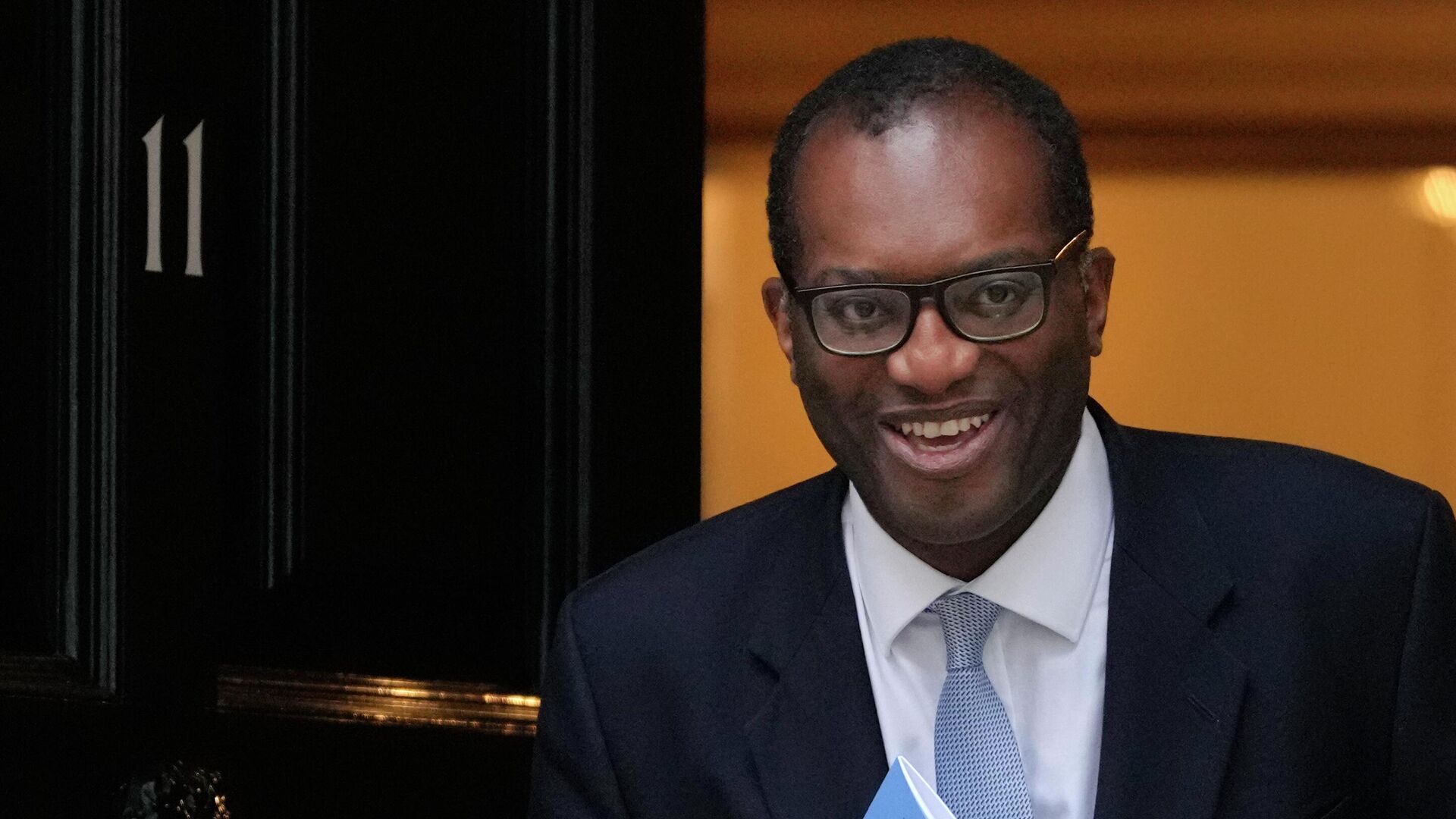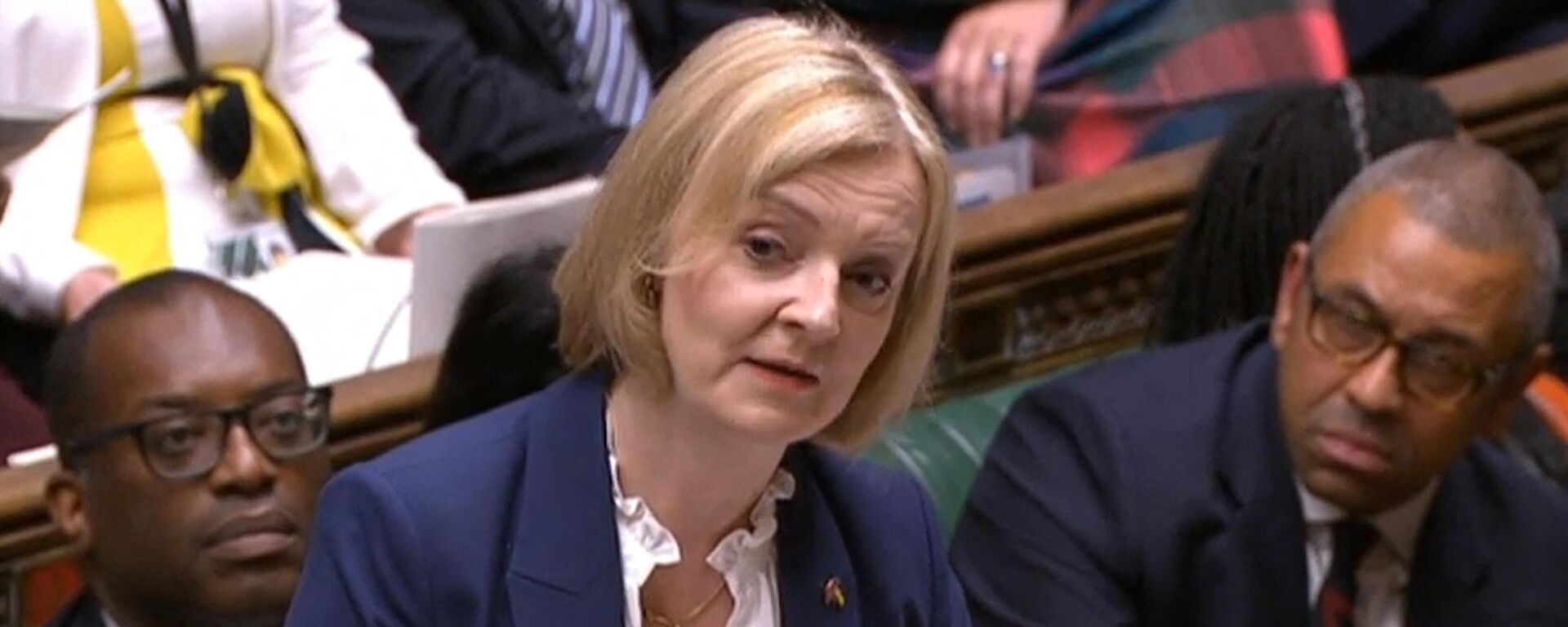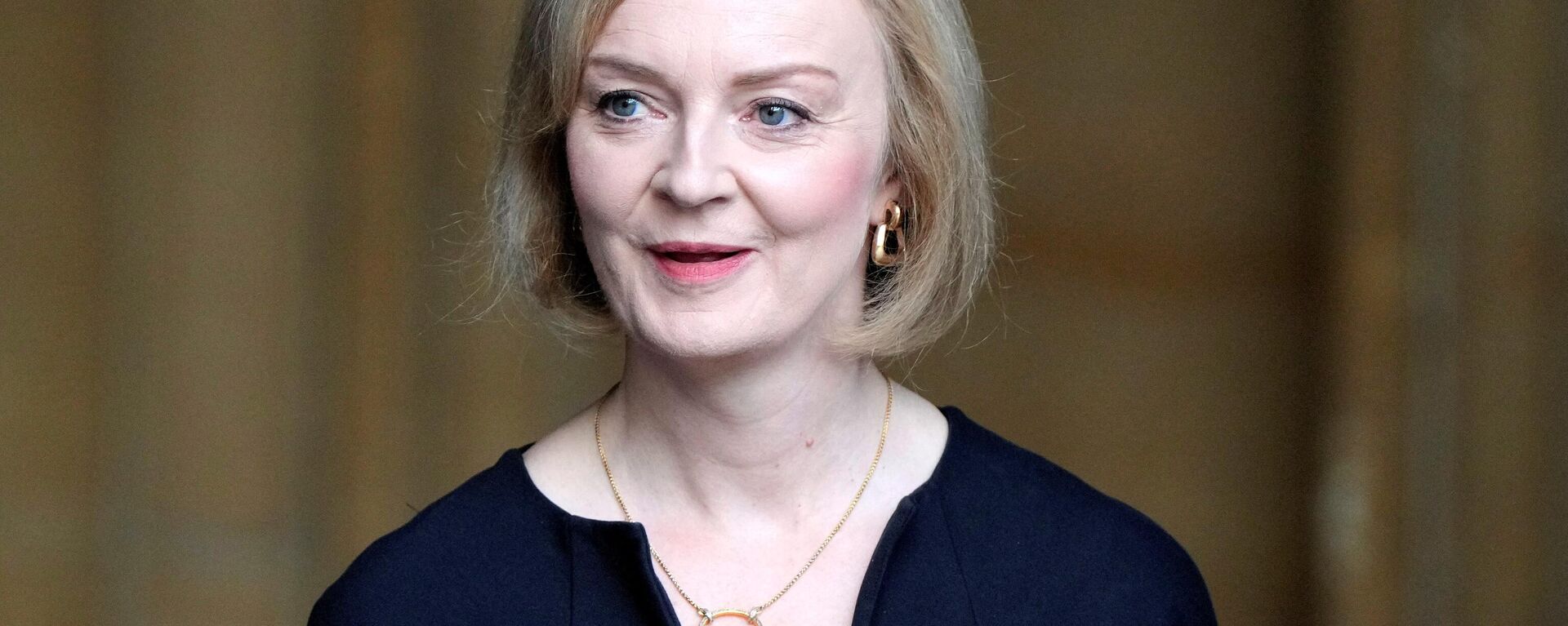UK Gov't Abolishes Plan to Scrap 45% Income Tax Rate for Top Earners
06:34 GMT 03.10.2022 (Updated: 15:21 GMT 28.05.2023)

© AP Photo / Kirsty Wigglesworth / Britain's Chancellor Kwasi Kwarteng leaves 11 Downing Street
Subscribe
The UK government’s Growth Plan, announced on 23 September, had proposed sweeping unfunded tax cuts, including abolishing the 45 percent top rate of income tax. The plan had triggered swift backlash from Conservative MPs amid ensuing financial turmoil and crippling polls.
The UK government has abolished the plan to scrap a 45% income tax rate for top earners.
Chancellor Kwasi Kwarteng said in a statement:
"From supporting British business to lowering the tax burden for the lowest paid, our Growth Plan sets out a new approach to build a more prosperous economy. However, it is clear that the abolition of the 45p tax rate has become a distraction from our overriding mission to tackle the challenges facing our country. As a result, I'm announcing we are not proceeding with the abolition of the 45p tax rate. We get it, and we have listened. This will allow us to focus on delivering the major parts of our growth package."
We get it, and we have listened. pic.twitter.com/lOfwHTUo76
— Kwasi Kwarteng (@KwasiKwarteng) October 3, 2022
The Chancellor announced the U-turn during the second day of the Conservative Party Conference in Birmingham. Kwarteng said the decision came after talking to MPs, as well as constituents. According to the Chancellor, who appeared on BBC Breakfast, "95% of the package is what we are focused on" and the rest of the "growth plan" will be kept in place.
Asked if he had considered resigning amid the backlash, Kwarteng said "not at all", and that he was focused on getting away from a "high-tax route". The Chancellor did not deny that the 45p tax cut was a mistake, saying he and Prime Minister Liz Truss "decided together" to row back on the measure.
When asked if there would be any more U-turns regarding the so-called mini-budget, Kwarteng did not rule this out, but said he was committed to the Growth Plan.
Mel Stride, chairman of the Treasury Select Committee, welcomed the U-turn, but called for more change, saying:
"A reversal of the abolition of the 45p rate is a positive step. Not just because of the issue of fairness but because it shows much-needed pragmatism by a government that has so far felt far too rigid and doctrinaire. The further big change needed now is to bring forward the OBR forecast so that the markets can be further reassured at the earliest opportunity."
Former Transport Secretary Grant Shapps, who had been one of the most vocal critics of the measure, "strongly welcomed" the reversal.
Strongly welcome today's 45p tax reversal. Sensible & pragmatic.
— Rt Hon Grant Shapps MP (@grantshapps) October 3, 2022
Conservatives want lower tax, but let's show our energy price cap + other policies are on side of consumers rather than borrowing to cut high earner taxes first.
Chx backs down on 45p tax https://t.co/uhIeaPCudh
Abolishing the 45 percent top rate of income tax was part of the government’s Growth Plan, dubbed a mini-budget, unveiled on September 23 by Chancellor Kwasi Kwarteng, that prompted financial turmoil, with the pound plummeting to record lows against the dollar.
Disapproval of the plan, which would benefit the wealthiest 1 percent, had been publicly voiced by several MPs.
Speaking on the first day of the 2022 Conservative Party Conference, Michael Gove, the former Levelling Up Secretary, said the measure displayed the “wrong values” and accused the Government of “betting too much on tax cuts.” He warned that the decision to borrow to fund tax cuts was “not Conservative.”
Former Transport Secretary Grant Shapps had also slammed the policy, warning the PM not to have a "tin ear" to voters' concerns amid the raging cost of living crisis.



